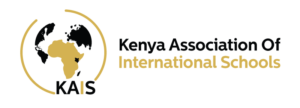Education stakeholders on Thursday affirmed their commitment to the early introduction of the coding curriculum in schools to help learners acquire technical skills relevant to a digital economy. Technology is rapidly changing the landscape of the workforce with employers across the world increasingly seeking a digitally skilled labour force. It is projected that by 2030, 50 – 55 per cent of all jobs in Kenya will require some level of digital skills with the demand being primarily driven by enterprises adopting digital technologies. It is against this backdrop that the Kenya Association of International Schools (KAIS) in partnership with Education Technologies firm, Kodris Africa and Kenya Commercial Bank on Thursday convened a Digital skills symposium that brought together various stakeholders from the education and ICT sectors. The event delved into the computing and coding curriculum and the importance of incorporating digital skills in primary and secondary schools. Also present were tech giants Microsoft, Google Safaricom, and Liquid Telcom among others. In the last two decades, curriculum reforms have been driven by rapid technological and social changes. However, while the importance of digital skills has been recognized, there has been less of a focus—particularly in emerging markets—on the scale of demand for these skills, and the models that can be used to teach them. Speaking during the event, Jane Mwangi, KAIS Head of Secretariat, underscored the need to train learners on digital skills from the elementary level saying, “If you look at more developed countries like Singapore and Japan, they have been teaching coding to their learners from the kindergarten level, but as we have also done that as international schools, we are glad that public and private schools are finally catching up. We have no option but to make coding part of our lifestyle.” Speaking during the event that was attended by close to 100 International Primary and Secondary Schools, Jack Ngare who is also head of Google in Africa said the only way Kenya and Africa are going to stay on par with developed nations is by introducing coding at the elementary level of schooling. “Coding is one of the fundamental building blocks in IT and empowering our people to be able to understand and build some of the technological products that we consume is why we need to start teaching coding in this country at zero option. Rather than just being consumers of technology, we build it as well. We were left behind by the 1st, 2nd and 3rd industrial revolutions, are we going to allow ourselves to be left behind by the 4th industrial revolution too?” Managing Director, Microsoft Africa Development Centre, Catherine Muraga said coding has become so central to all career paths adding, “the need to teach learners how to solve problems through coding has become a lot more important that we have to pay attention. It is as important as English or French in communication. We have to make sure our children are well equipped for efficiency and productivity.” In Kenya, the demand for digital skills training is expected to surge as we approach the next decade. The COVID-19 pandemic accelerated the speed of this change. 70% of demand is expected to be for foundational skills, followed by 23 % for non-ICT intermediate skills. Kodris Africa is the only organization offering a curriculum approved by the Kenya Institute of Curriculum Development (KICD). Speaking at the event, Kodris Africa CEO, Mugumo Munene emphasized the importance of teaching learners more than just how to use computer applications. “If you talk to experts, they will tell you that the younger you start learning how to code the better it is. In a world that is so connected, children need to learn digital skills such as coding from an early age. The curriculum we have developed is not necessarily for one segment of schools, it is cross-cutting and can be deployed by public schools, private schools, and international schools,” Munene said. Coding involves translating instructions for a computer from human language to a language a machine/computer can understand. Technologies that we have come to rely on such as smartphones, ATM cards, mobile money, Internet banking, e-learning, and telemedicine all run on codes. Speaking on behalf of KICD, which is the body mandated to provide curricula and curriculum support materials, the Assistant Director of e-Learning, Charles Munene said that “In the last two decades, curriculum reforms have been driven by rapid technological and social changes. Coding is becoming the most in-demand job skill of the future, therefore, we must align our curriculum to this rising demand in the job market.” Countries like the US, China, England, Germany, and France among many others in the developed world have already made coding compulsory for grade-one learners. Globally, employment in computer and IT occupations is projected to grow 13% from 2020 to 2030, faster than the average for all occupations. The median annual wage for IT occupations was $91,250 in May 2020, which was higher than the median annual wage for all occupations of $41,950. Demand for IT skills is expected to be driven by cloud computing, the collection and storage of big data, and information security.
